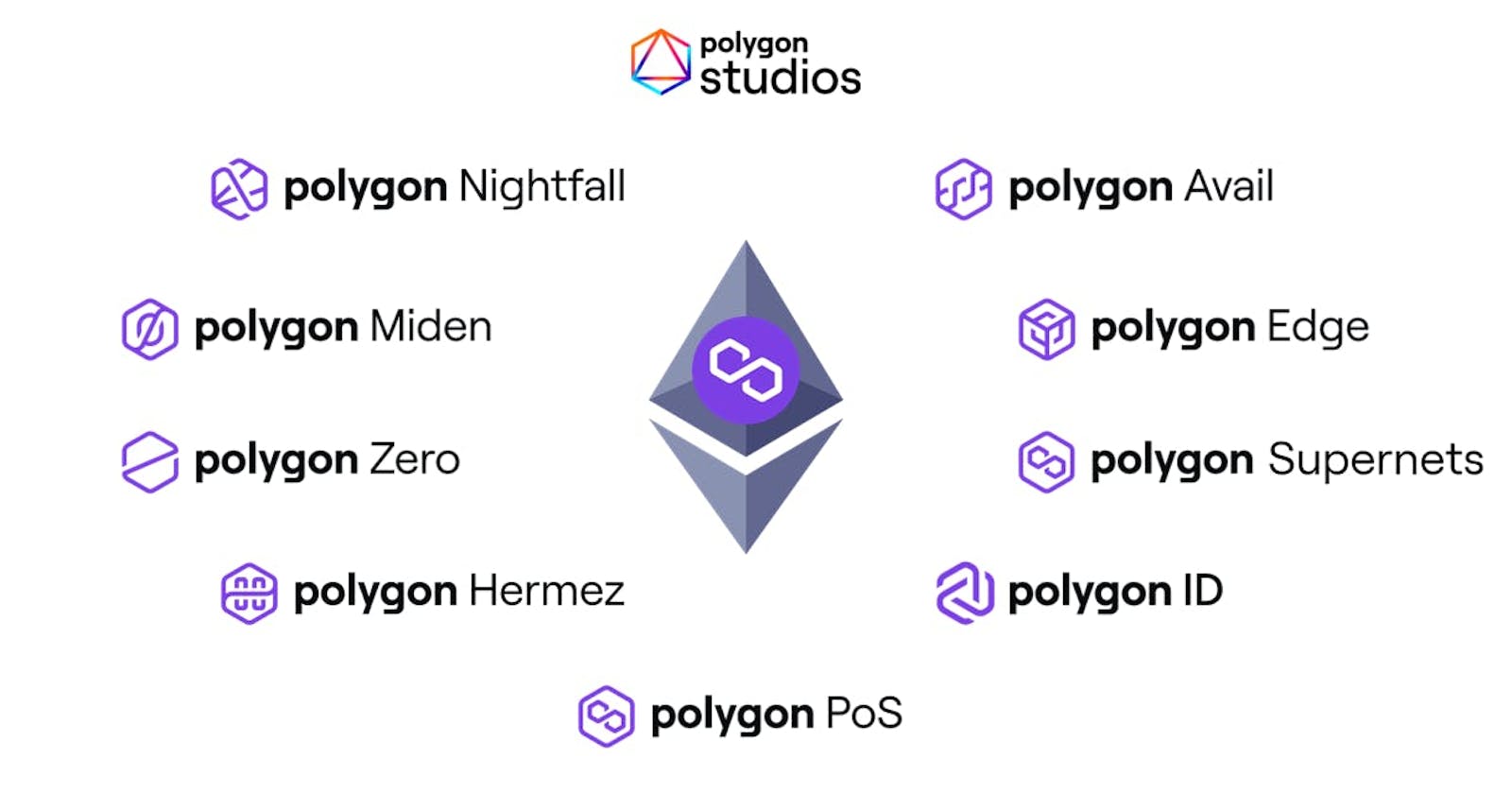Polygon: The SHIELD of ETHEREUM
Polygon is becoming the SHIELD of ETHEREUM. Read how
Table of contents
Polygon, which started as a layer-2 scaling solution is now an ETHEREUM ECOSYSTEM and is slowly becoming the Ethereum's SHIELD. Let's see both Standalone and Ecosystem services it offer.
Standalone Benefits of Polygon
Scalability
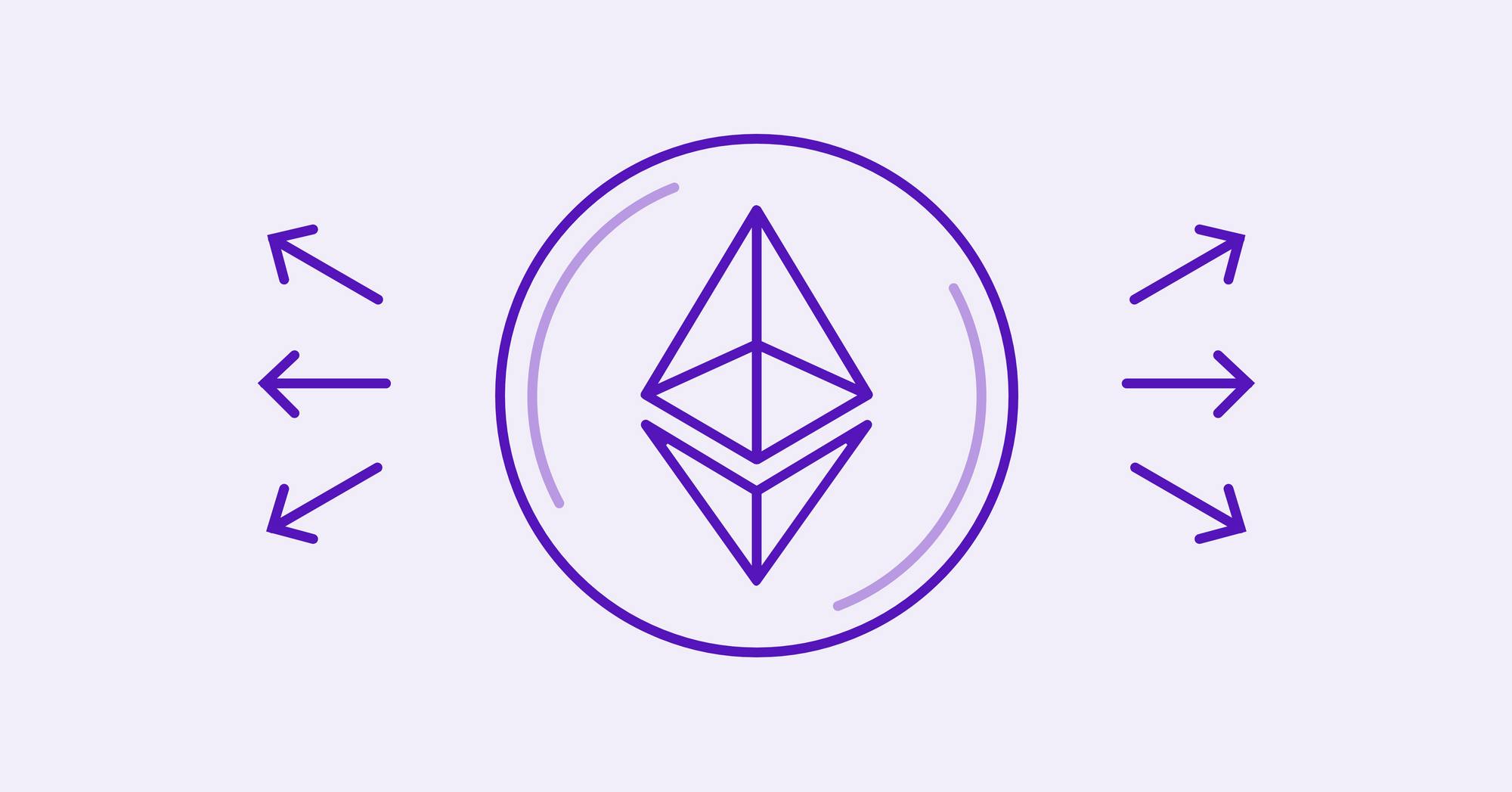
One of the main issues with Ethereum is its scalability. As more and more people use the network, the number of transactions per second (TPS) that can be processed becomes limited. This can lead to delays and high transaction fees, making it difficult for users to access and use the network.
Polygon addresses this issue by providing a layer 2 scaling solution for Ethereum. It does this by using a technique called "off-chain scaling." This means that transactions are processed off of the main Ethereum blockchain, allowing for faster and cheaper transactions.
Gas Fees
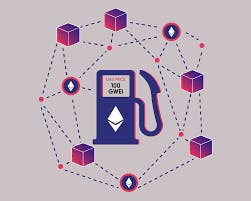
When a user wants to make a transaction on the Polygon network, they first have to pay a small amount of Ether (ETH) as a "gas fee." This fee is used to cover the cost of processing the transaction on the Polygon network. Once the transaction is processed, it is then "anchored" or "confirmed" on the main Ethereum blockchain. This ensures that the transaction is secure and cannot be tampered with.
One of the key benefits of Polygon is its low transaction fees. Because transactions are processed off of the main Ethereum blockchain, the cost of processing them is much lower. This makes it more accessible for users who may not be able to afford the high fees associated with using the Ethereum network.
Transaction Time
Another benefit of Polygon is its fast transaction times. Because transactions are processed off-chain, they can be processed much faster than on-chain transactions. This means that users can access and use the network more quickly and efficiently.
Metaverse and Gaming
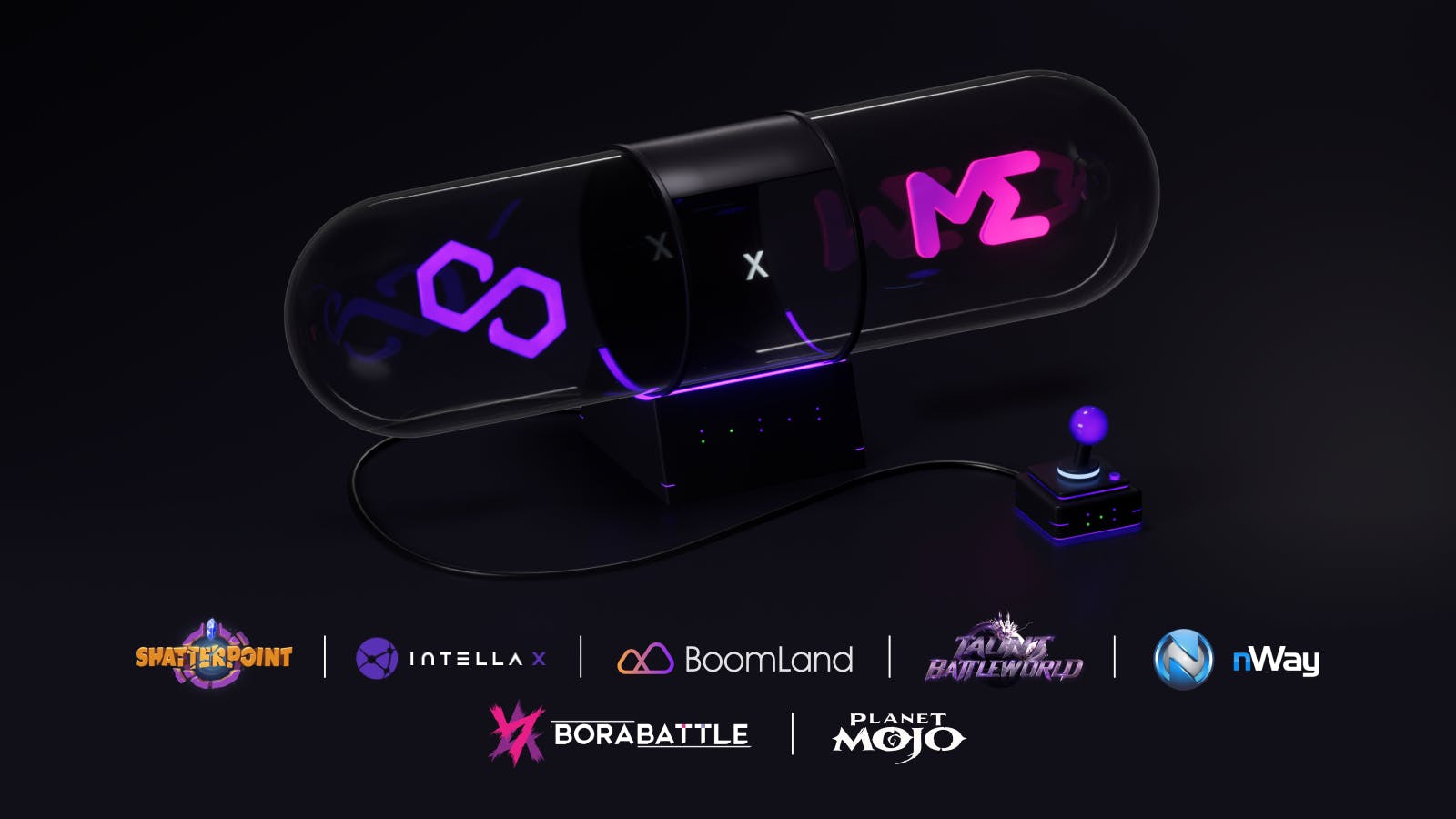
One of the key ways that Polygon is helping to bring the Metaverse and gaming to web3 is through its support for Ethereum-based virtual worlds and gaming platforms. The Metaverse is a virtual reality space where users can interact with each other and digital assets in a decentralized and immersive environment. By providing a fast and affordable layer 2 scaling solution, Polygon is making it possible for these virtual worlds and gaming platforms to operate smoothly on the Ethereum network.
Additionally, Polygon's support for the development of decentralized applications (dApps) and tokens on its network is also helping to drive innovation in the gaming and Metaverse space on web3. With Polygon, game developers and creators can launch their own dApps and tokens without having to pay the high fees associated with doing so on the Ethereum network. This is helping to foster a new ecosystem of decentralized gaming and Metaverse experiences that are accessible to a wider range of users. By providing a more affordable and accessible platform for the development of these types of dApps, Polygon is helping to bring the Metaverse and gaming to the masses on web3.
WEB2 to ETHEREUM

Polygon is also helping to bring web2 corporates like Reddit, Meta, and Starbucks to web3 by providing them with a fast and affordable way to integrate blockchain technology into their operations. These companies have large user bases and a lot of experience in their respective industries, but they may not have the technical expertise or resources to build their own blockchain solutions from scratch.
By using Polygon as a layer 2 scaling solution, these companies can easily add blockchain functionality to their existing systems without incurring the high costs and development time associated with building their own solutions. This allows them to take advantage of the security, transparency, and decentralized nature of blockchain technology without having to disrupt their existing operations. For example, Reddit, which is known for its communities and discussions, could use the blockchain to create a new way for users to earn rewards for their contributions, or for Starbucks which could use blockchain for tracking of their supply chain and rewards for their customers.
In short, Polygon is helping to bridge the gap between web2 and web3 by providing a simple and accessible way for web2 corporates to integrate blockchain technology into their operations, thus helping to bring more mainstream businesses to the decentralized web.
Interoperability
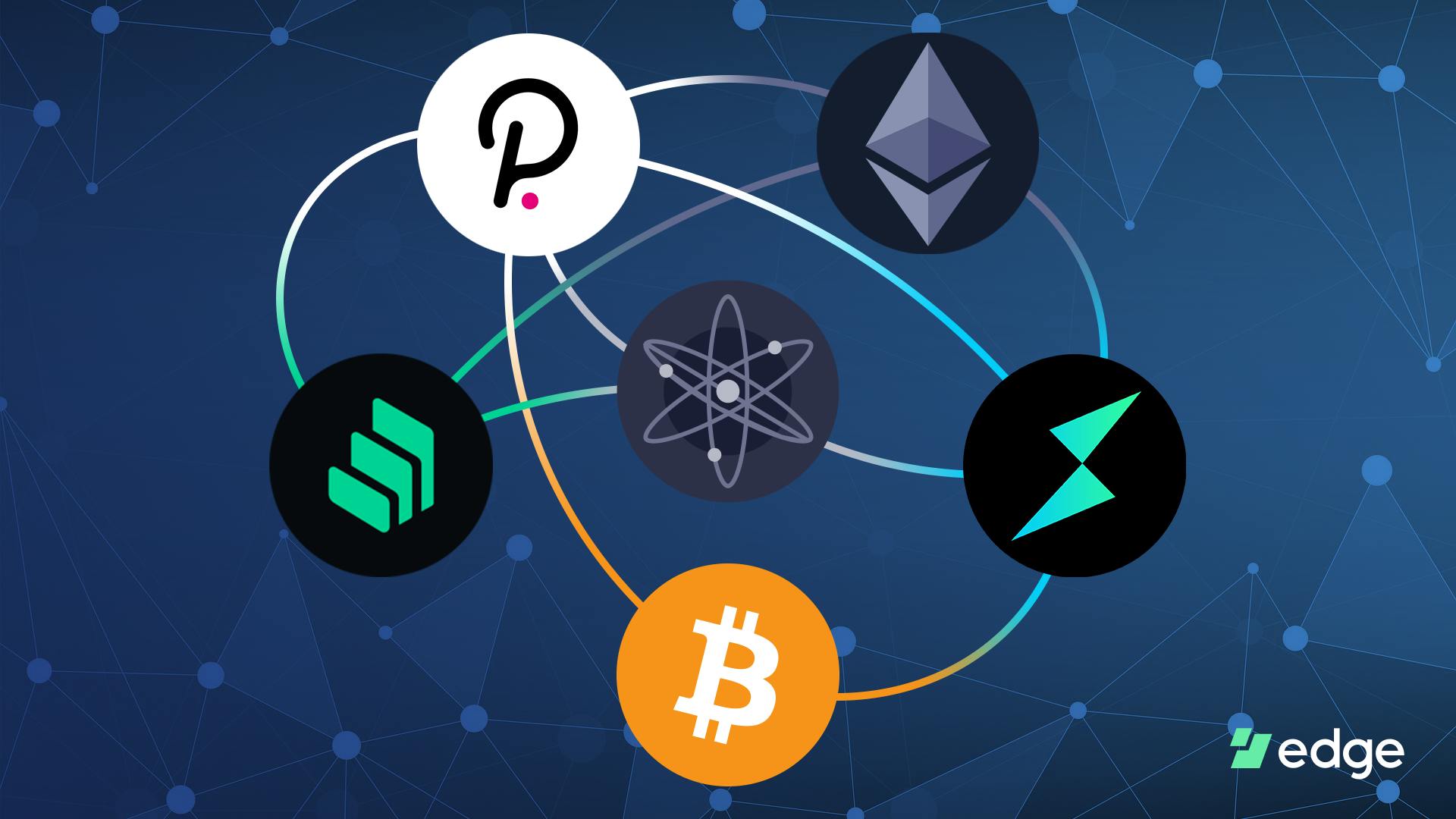
Polygon is also helping Ethereum by providing interoperability between different blockchain networks. Interoperability is the ability for different blockchain networks to communicate and interact with each other, allowing for the transfer of data and assets across different networks. This is important because it allows for the creation of a more connected and inclusive blockchain ecosystem, where users can easily access and use the services provided by different networks.
Polygon enables interoperability through the use of its own mainnet and several sidechains which are connected to the Ethereum mainnet. The sidechains are independent networks that can support different use cases and protocols, but they are still connected to the Ethereum mainnet through a process called "pegging." This allows for the transfer of assets and data between the sidechains and the Ethereum mainnet, creating a more connected ecosystem. Additionally, Polygon also enables interoperability between different blockchain networks through its support for cross-chain communication protocols such as Cosmos' IBC and Polkadot's XCMP. This allows for the seamless transfer of data and assets across different networks, further expanding the capabilities of the Polygon ecosystem.
A.I. coming to ETH

Polygon is also helping Ethereum by bringing Artificial Intelligence (AI) to web3. AI is a rapidly growing field that has the potential to revolutionize many industries, and by providing a fast and affordable layer 2 scaling solution, Polygon is making it possible for AI-based dApps to operate on the Ethereum network. By making AI accessible to web3, Polygon is helping to drive innovation in areas such as machine learning, natural language processing, and computer vision.
One specific example of how Polygon is bringing AI to web3 is through its support for AI-based prediction markets. Prediction markets are decentralized platforms that allow users to make predictions about future events and outcomes, and they have the potential to revolutionize the way that businesses and organizations make decisions. By providing a fast and affordable layer 2 scaling solution, Polygon is making it possible for AI-based prediction markets to operate on the Ethereum network. These prediction markets can use AI to analyze large amounts of data and make more accurate predictions, which can help to drive innovation and efficiency in a wide range of industries.
Ecosystem Development of Polygon
Polygon Nightfall

Another important aspect of Polygon is the Nightfall protocol. Nightfall is a privacy protocol that enables confidential transactions on the Polygon network. It uses zero-knowledge proofs to conceal the transaction amounts and identities of the parties involved, providing a high level of privacy and security for users. This is particularly useful for financial transactions, such as the buying and selling of assets, as well as other sensitive transactions that require a high level of privacy.
Nightfall is built on top of the zk-SNARKs (zero-knowledge succinct non-interactive arguments of knowledge) technology, which is a zero-knowledge proof system that allows for the verification of information without revealing the underlying data. This means that users can prove that a transaction is valid without revealing the details of the transaction. Nightfall also uses a technique called "shielding" to conceal the transaction amounts, which means that the amounts are converted into a different form before they are recorded on the blockchain, making them harder to trace and link to specific users.
By adding Nightfall protocol to its ecosystem, Polygon is providing an additional layer of security and privacy to the transactions on its network. This can help to attract more mainstream users and businesses to the decentralized web, as they will have more control over their financial and personal data. With Nightfall, Polygon is enabling the development of more advanced dApps and use cases that require a high degree of security and privacy.
Polygon Miden
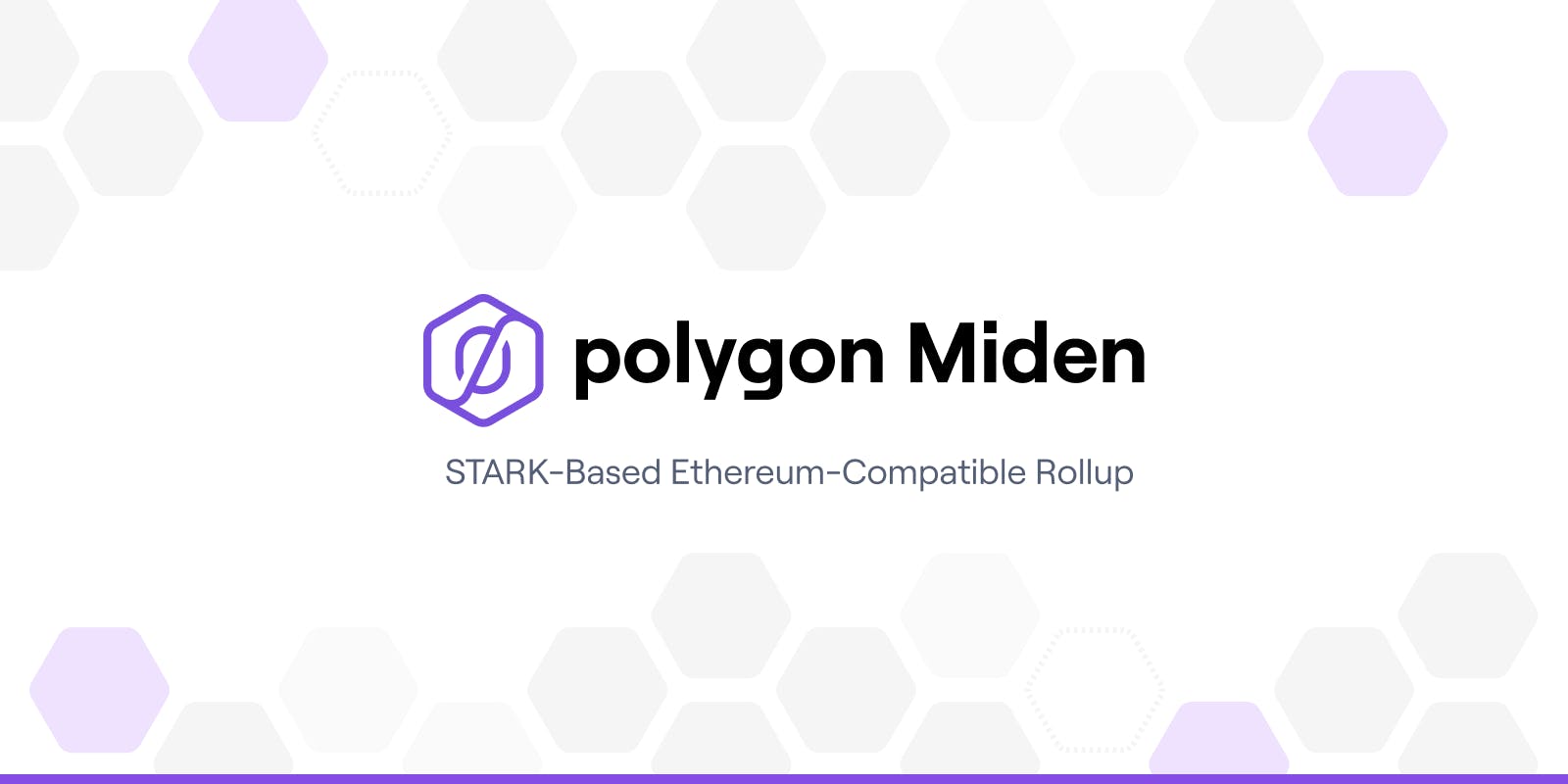
Another important aspect of Polygon is its middleware solution, known as "Polygon Middleware." This is a set of software modules that are designed to make it easier for developers to build and deploy dApps on the Ethereum network. The middleware provides a set of pre-built, reusable components that can be used to quickly and easily create and deploy dApps, reducing the time and effort required to build and test new applications.
The middleware also includes a set of tools and services that are designed to help developers optimize the performance and scalability of their dApps. This includes features such as automatic load balancing, which can help to distribute the load across multiple nodes, and caching, which can help to improve the performance of dApps by reducing the number of requests that need to be made to the Ethereum network. Additionally, the middleware also includes security features such as encryption and authentication, which can help to protect dApps from malicious attacks.
By providing a middleware solution, Polygon is helping to make it easier for developers to build and deploy dApps on the Ethereum network. This can help to drive innovation and adoption of blockchain technology by making it more accessible to developers and businesses, which can ultimately lead to more mainstream users and businesses using and benefiting from the decentralized web.
Polygon Zero

In addition to its role as a layer 2 scaling solution, Polygon is also helping Ethereum by providing a secure and decentralized platform for building and deploying smart contracts, through its Polygon zero. Polygon zero is a standalone, fully decentralized blockchain built on the Ethereum network that enables developers to deploy and run their own smart contracts and dApps without the need for a centralized authority or intermediary. This is important because it allows for the creation of a more open and transparent blockchain ecosystem, where developers have the freedom to build and deploy their own decentralized applications without the need for permission or approval from any centralized entity.
The Polygon zero blockchain is based on the Ethereum Virtual Machine (EVM) and is fully compatible with the Ethereum network. This means that developers can use the same programming languages, tools, and frameworks that they are already familiar with, to build and deploy smart contracts and dApps on the Polygon zero blockchain. In addition, the Polygon zero blockchain also supports other features such as fast transaction processing, low transaction fees, and governance mechanisms that make it an attractive platform for building and deploying decentralized applications.
Polygon Hermez

Another way that Polygon is helping Ethereum is by introducing Hermez, a new layer 2 scaling solution that utilizes a novel approach called zkSync. zkSync is a privacy-preserving rollup solution that allows for faster and cheaper transactions on the Ethereum network. Hermez aims to provide a fast and affordable solution for users who want to transfer assets and data on the Ethereum network, without compromising on security and privacy.
Hermez operates on top of Polygon and utilizes zkSync to enable fast and affordable transactions. zkSync is a privacy-preserving rollup solution that allows for faster and cheaper transactions on the Ethereum network. By using zkSync, Hermez is able to reduce the cost of transactions and improve scalability, making it an attractive option for users who want to transfer assets and data on the Ethereum network. Additionally, Hermez also aims to provide a more private and secure way for users to transfer assets on the Ethereum network, as it uses zero-knowledge proofs to keep transactions private and secure.
Polygon ID
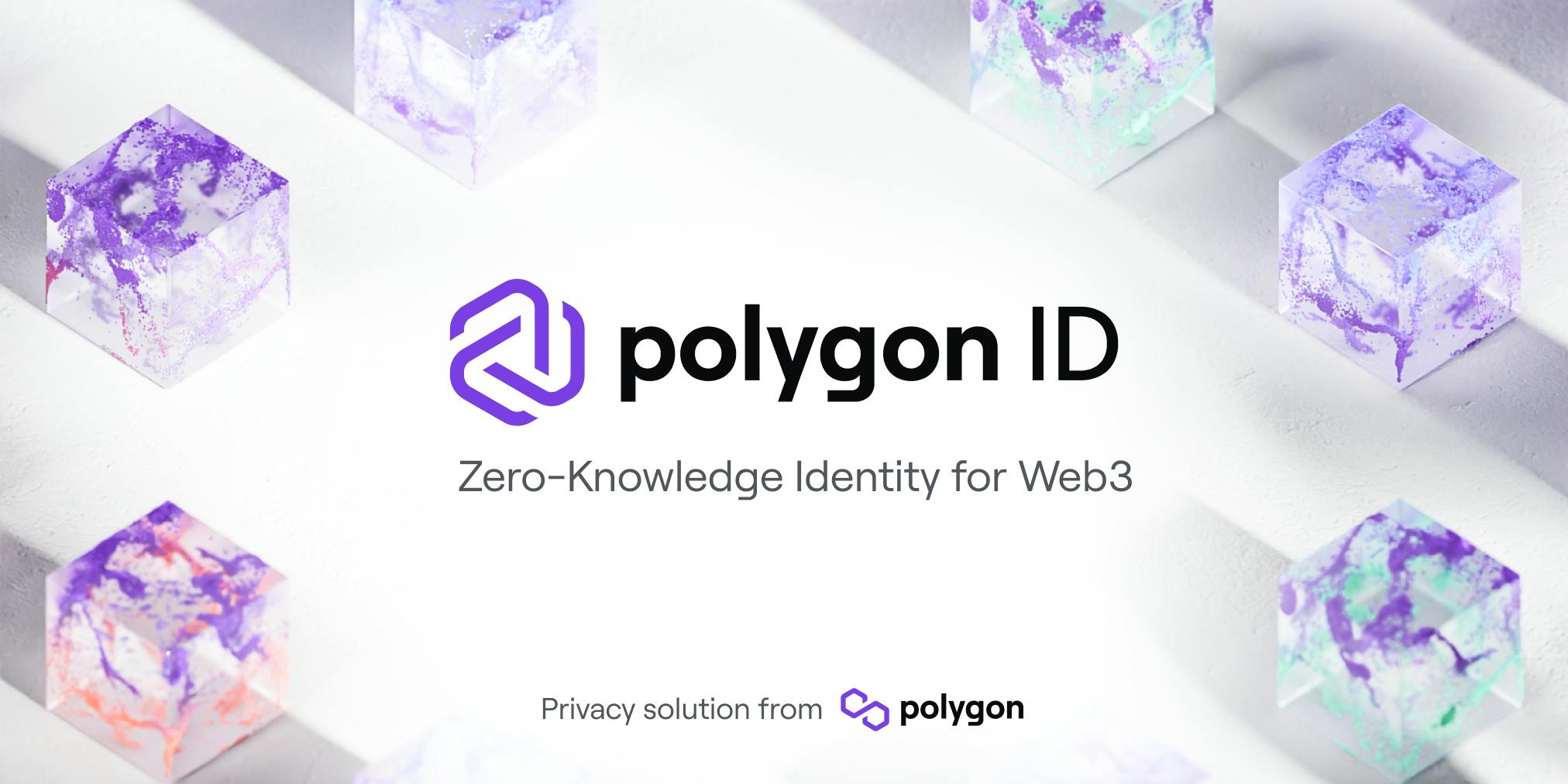
Polygon ID is another important feature that Polygon offers to help Ethereum. It is a decentralized identity solution that allows users to create and manage their digital identities on the blockchain in a secure and private way. This is important because it allows users to have full control over their personal data and information, while also providing a way for businesses and organizations to verify the identity of their users in a trustless and decentralized way.
Polygon ID is based on the Ethereum Name Service (ENS) and uses smart contracts to create and manage digital identities. It allows users to create a unique and decentralized identity that can be used across different applications and services. This can help to improve the user experience and make it easier for users to interact with decentralized applications and services. Additionally, Polygon ID can also be used to create and manage digital identities for non-human entities, such as machines, devices, and assets, which can be used to enable various use cases such as supply chain management, IoT and more.
Polygon Edge
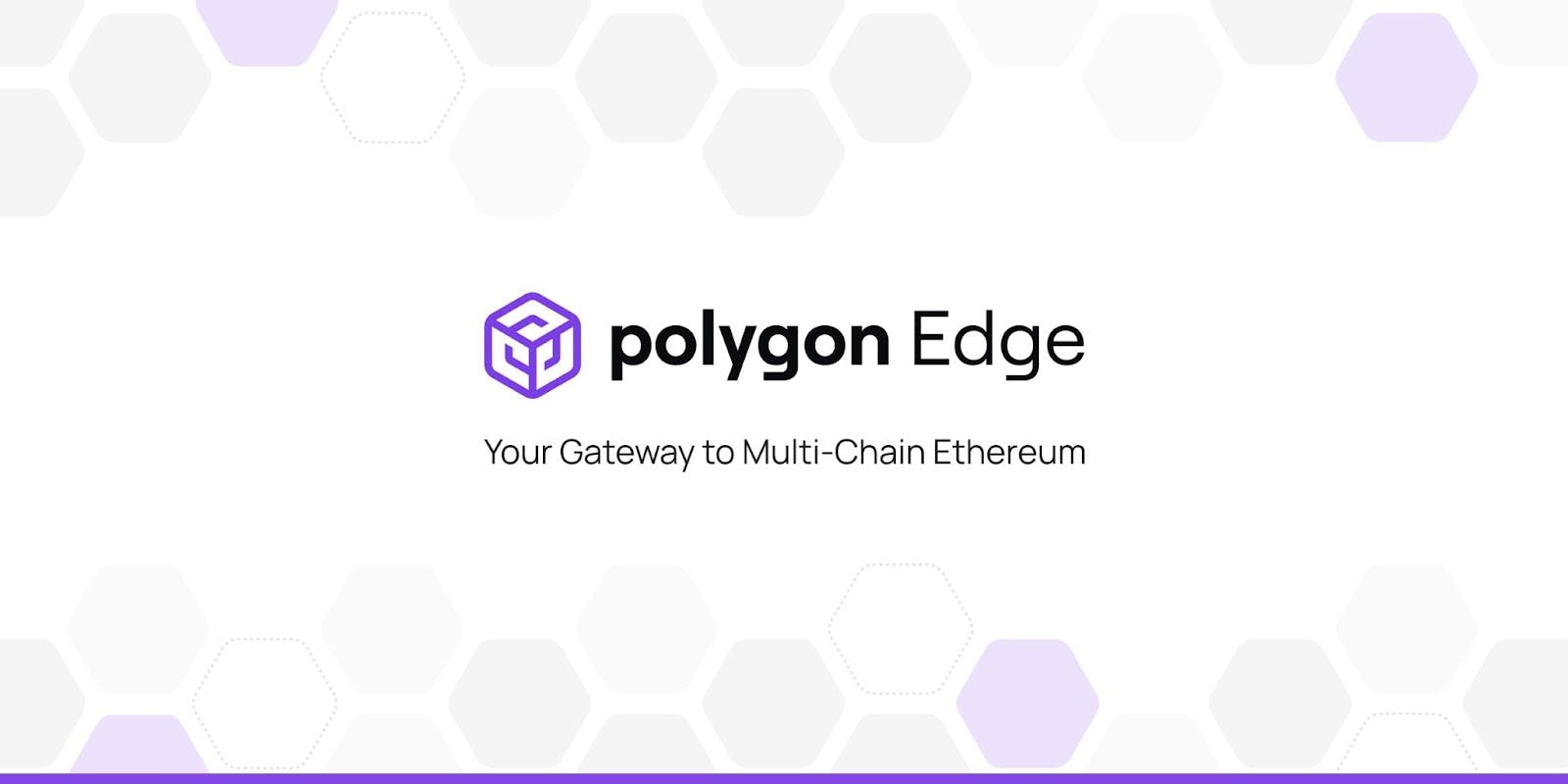
Another way Polygon is helping Ethereum is through its Polygon SDK, also known as the Polygon Edge Framework. The Polygon Edge Framework is a set of tools and libraries that developers can use to build their own EVM compatible blockchain. This allows developers to create their own decentralized apps (dApps) and smart contracts on top of the Ethereum network, without the limitations of the Ethereum mainchain.
The Polygon Edge Framework provides developers with a variety of tools, including a full-featured JSON-RPC API, a command-line interface (CLI), and a set of libraries for different programming languages, such as JavaScript and Python. This allows developers to easily build and deploy their dApps and smart contracts on the Polygon network, without the need for deep knowledge of blockchain development. Additionally, the Polygon Edge Framework also includes built-in support for popular Ethereum development frameworks such as Truffle and Embark, which can help to simplify the development process even further.
Polygon Avail
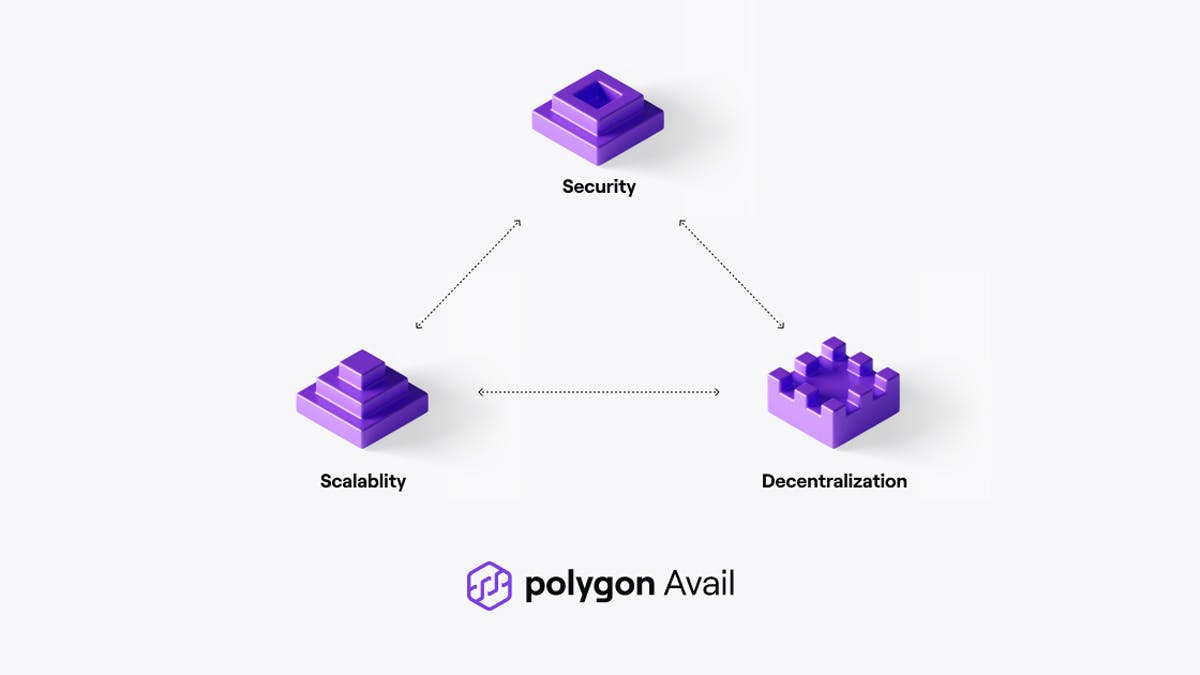
Another way that Polygon is helping Ethereum is through its data availability testnet, known as Polygon Avail. The purpose of this testnet is to test and improve the data availability layer of the Polygon network. The data availability layer is responsible for storing and providing access to historical data on the Polygon network, and it is crucial for the proper functioning of dApps and smart contracts.
Polygon Avail is a testnet that allows developers to test and improve the data availability layer of the Polygon network. It allows developers to test the data availability layer in a real-world setting, which can help to identify and resolve any issues before the technology is deployed on the mainnet. Additionally, Polygon Avail also allows for the testing of new data availability solutions, such as sharding, which can help to improve the scalability and performance of the Polygon network.
Polygon Studios
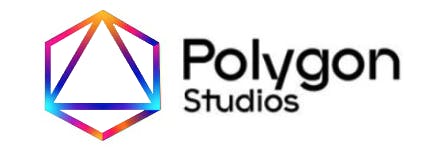
Another way Polygon is helping to drive innovation in the Ethereum ecosystem is through its development of Polygon Studios. Polygon Studios is a developer-focused initiative that provides a suite of tools and resources to help developers build and deploy decentralized applications (dApps) on the Polygon network. These tools include a development framework, a library of smart contract templates, and a developer community platform.
By providing these resources, Polygon Studios aims to make it easier for developers to build and deploy dApps on the Polygon network. This can help to drive innovation in the decentralized web by making it more accessible to developers and encouraging the development of new and interesting dApps. Additionally, the developer community platform can be a great opportunity for developers to connect with other like-minded individuals, share knowledge and collaborate on projects, which can help to foster a thriving ecosystem.
Conclusion
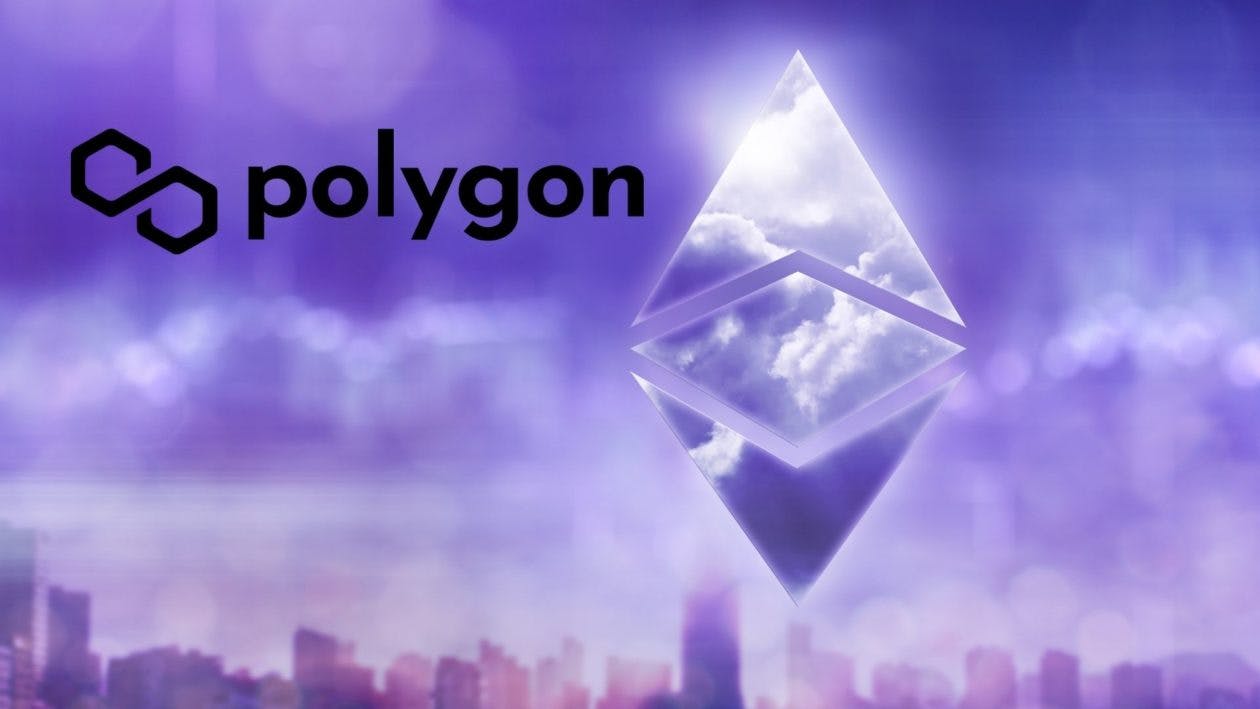
Overall, Polygon is helping Ethereum to scale, become more inclusive, efficient and innovative through its layer 2 scaling solution. This can help Ethereum to become more accessible to mainstream users and businesses, which can ultimately drive the adoption and growth of the decentralized web.
In conclusion, Polygon is playing a crucial role in helping Ethereum by providing a fast and affordable layer 2 scaling solution that can help to improve the scalability and performance of the Ethereum network. Additionally, Polygon is also helping to bring Metaverse and gaming to web3, bring web2 corporates like Reddit, Meta, and Starbucks to web3, bring interoperability between different blockchain networks, and bring Artificial Intelligence to web3.

